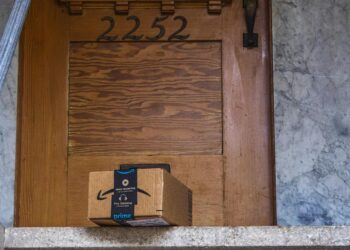In a significant development, the U.S. Federal Trade Commission (FTC) has taken legal action to thwart the proposed merger between Kroger (KR) and Albertsons (ACI), citing apprehensions regarding potential price hikes for consumers and diminished wages for workers.
The FTC announced its administrative complaint and subsequent lawsuit authorization in federal court aimed at halting Kroger’s acquisition of Albertsons. This move garnered bipartisan support from nine state attorneys general, underscoring widespread concerns across the nation.
Henry Liu, Director of the FTC’s Bureau of Competition, highlighted the detrimental impact the merger could have on consumers, exacerbating financial burdens amid current economic challenges. Additionally, Liu expressed concerns about the adverse effects on essential grocery store workers, including dwindling wages, reduced benefits, and deteriorating working conditions.
Kroger and Albertsons have yet to respond to the FTC’s action, which comes after more than a year of regulatory scrutiny. Initially proposed in October 2022 as a $24.6 billion deal, the merger aimed to enhance competitiveness against industry giants like Walmart and Amazon. However, the FTC contends that the consolidation would stifle competition, particularly during a period of heightened inflation.
Despite Kroger’s assertions that the merger would lead to lower prices and improved profitability, opposition from unions representing employees of both companies and concerns over potential market dominance have intensified scrutiny. The FTC argues that the merger would undermine consumer choice and employee bargaining power, ultimately harming both shoppers and workers alike.
The potential ramifications of this legal battle extend beyond the grocery sector, with implications for labor markets, consumer prices, and corporate consolidation trends. As the case unfolds, stakeholders eagerly await further developments amid ongoing debates over competition, worker rights, and consumer welfare.











